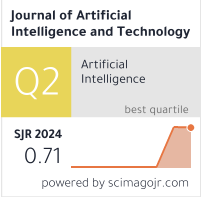A Privacy-Preserving System for Alzheimer’s Disease Detection Based on Federated Learnings
DOI:
https://doi.org/10.37965/jait.2025.0661Keywords:
Alzheimer's disease, differential privacy, federated learning, privacy-preservingAbstract
Alzheimer’s disease (AD) is a severe neurodegenerative disorder that primarily affects the elderly. Early detection is crucial for enabling timely interventions and slowing the disease’s progression. A promising approach for early detection involves analyzing audio data collected from elderly individuals in their homes using Internet of Things (IoT) devices. However, this method presents significant challenges concerning privacy and data security. This paper introduces Efficient Differential Privacy-Alzheimer’s Detection (EDP-AD), an efficient and privacy-preserving system. The system utilizes small IoT devices to collect audio data from elderly individuals. By integrating machine learning, federated learning (FL), and differential privacy (DP) techniques, EDP-AD ensures that raw audio data remains local while breaking down data silos, thereby preventing potential privacy leaks during the disease detection process. To enhance system efficiency, a sparse mask updating algorithm based on Top-k is proposed. This algorithm reduces communication overhead by sparsifying the model parameters uploaded by clients within the FL framework. Evaluation on a real-world dataset shows that the system achieves an accuracy rate of 84.48%, reduces communication costs by two-thirds, and provides robust privacy protection while maintaining high efficiency.
Published
How to Cite
Issue
Section
License
Copyright (c) 2025 Authors

This work is licensed under a Creative Commons Attribution 4.0 International License.





